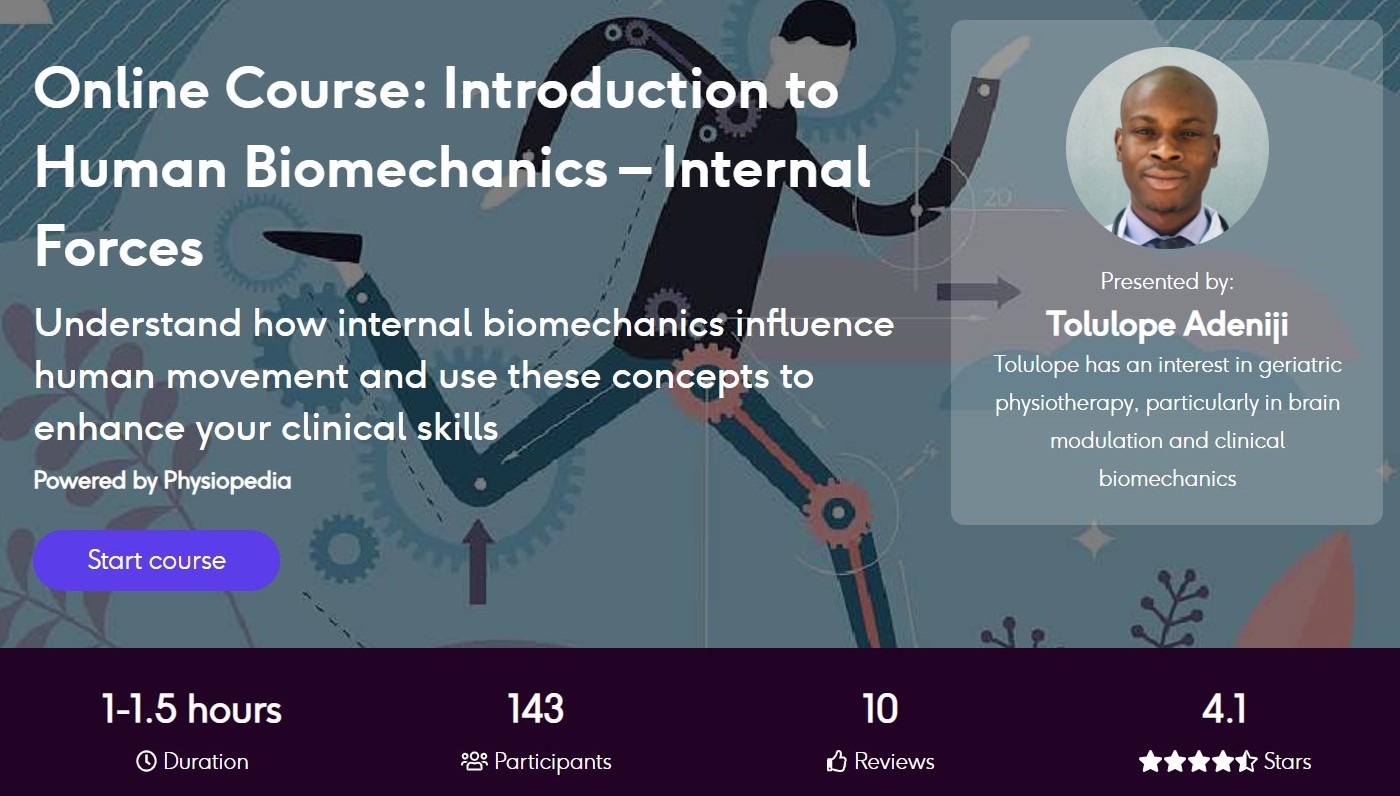The COVID-19 pandemic negatively effects the mental health and physical activity level of older people. Virtual reality-based exercises—a means of engaging an individual with exercises in a three-dimensional virtual world by allowing interaction with multisensory activities—is a novel approach to promote health and well-being in older adults by creating a world that is free of covid-19 and its pandemic effects.
The elderly, particularly those over the age of 65, are the most affected by the pandemic and despite the recent creation of COVID-19 vaccines, the prevalence of this condition is on the rise. Cognitive impairment, decreased motor ability, increased obesity, and psychological disorders are all common defecits older people deal with on a daily basis and all are exacerbated by the pandemic.
Explore Biomechanics with Tolulope
Fewer social gatherings, interactions, and the resultant self-isolation are barriers to the usual way older people commonly exercise. This is an issue as structured physical activity is known to improve overall health outcomes and wellbeing in older people so a novel exercise is required. A group of researchers led by Professor Gao recently published an editorial on the efficacy and effectiveness of virtual reality exercises in promoting the health and well-being of older adults during the COVID 19 pandemic and even beyond.
“The use of at-home rehabilitation techniques would lead to more effective rehabilitation, as older adults can receive real-time feedback from home by using VR during times in which they are not at the clinic. This may be especially important during the COVID-19 pandemic, as older adults may wish to remain quarantined in their homes given their increased risk of contracting the virus” Professor Gao
Virtual reality is a type of technology that allows patients or users of the technology to enter a virtual world. It can be immersive or non-immersive. Immersive virtual reality involves using a head mounted display or an enclosed room display to engage patients with desired activities/environments. To engage the patient, non-immersive VR involves displaying desired activities or environments on a projector or desktop. Virtual reality exercises have been widely discussed in psychotherapy and stroke rehabilitation, and when used, they have been shown to improve the individual overall health and well-being.
Based on previous research indicating the value of virtual reality-based exercises for older adults, Gao and colleagues summarize the findings of virtual reality-based exercises on common health challenges in older adults (cognitive impairment, decreased motor ability, increased obesity, and psychological disorders) that could be exacerbated during the covid-19 pandemic.
The authors reported that…
“…two studies had muscular strength as an outcome measure which significantly improved, one looked at hip strength and the other used grip strength. Due to this difference, the effect of VR on targeted muscle strength is inconclusive, and more research is needed in the future.”
Virtual reality exercises improve older adults mental health outcomes including anxiety and depression especially when combine with cognitive behaviour therapy, CBT. However, more supporting empirical evidence is needed in this field of inquiry, considering that only one empirical study and two preliminary reviews were identified. According to Gao et al empirical studies support that VR leads to improvements, although not always significant, in the most common health concerns seen in older adults: decreased motor ability, increased obesity, impaired cognition, falls and various psychological disorders.
Generally virtual reality exercises are a low-cost, simple, and enjoyable way to deliver therapeutic exercises. In addition the fact that they facilitate social distancing, have numerous benefits and offer more patient choice and variety in delivering exercise, it is a tool I suspect we will continue to use as clinicians from now on.
References
- Gao Z, Lee JE, McDonough DJ, Albers C. Virtual reality exercise as a coping strategy for health and wellness promotion in older adults during the COVID-19 pandemic.
